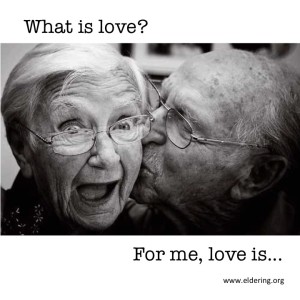 By Jim Selman | Bio
By Jim Selman | Bio
Love is, I think, the most universal and central aspect to our experience as human beings. In much of our music, literature, popular culture and day-to-day life there is no other topic that even comes close. Yet, love for most of us remains a mystery — something that we all about without any consensus as to what love really is.
Not long ago, I was facilitating a meeting of top executives in a food company in the Ukraine. They were working on the question of ‘why’ they were doing what they were doing. What, they asked, was the point both personally and as a business? Were they working exclusively for the money or did they have some overarching purpose? Their answer was simply that ‘they cared’ about the health and well being of the people in their communities. On closer examination, they declared that the bottom line was ‘love’. They wanted to be part of something that mattered and make a difference. They saw that this translated in to loving themselves, loving their company and loving their community. Love has become their raison d’etre.
I was asked to lead a conversation on the subject of love that turned into a very long inquiry into the nature of love —
The conversation with about 100 executives and managers began with the question “what is love”. Everyone had a different answer—most were thoughtful, some philosophical, some experiential, a few poetic, several even approached the metaphysical. But everyone had an answer, usually preceded by the statement “For me love is….”. Two things became clear. First that there is no shared understanding or interpretation of what love is, not even close. Secondly, everyone considers love to be something personal as if their experience and point of view about love was in fact an accurate or proper description or definition of love.
I suggested we investigate love as a phenomenon, like the weather. Could they see that their conversations and best thinking about love was analogous to talking about a rainstorm as if it was personally raining on us? What if love is more than simply our personal experience or explanations? What if love is in fact, not even personal?
Is love a choice? Can love be taught? Can we learn love?
These and other questions began to open and reveal that most of us have never deeply examined how love occurs for us even though it is central to our lives.
Why is this inquiry important remains to be seen. For now I encourage anyone interested in the subject to jump in with your thoughts and experience. If love is a universal phenomenon and if it can be distinguished in a way that it can be mastered or intentionally ‘presenced’; it might offer a pathway, a context for resolution or co-existence of the diversity of points of view that divide and threaten our world.
